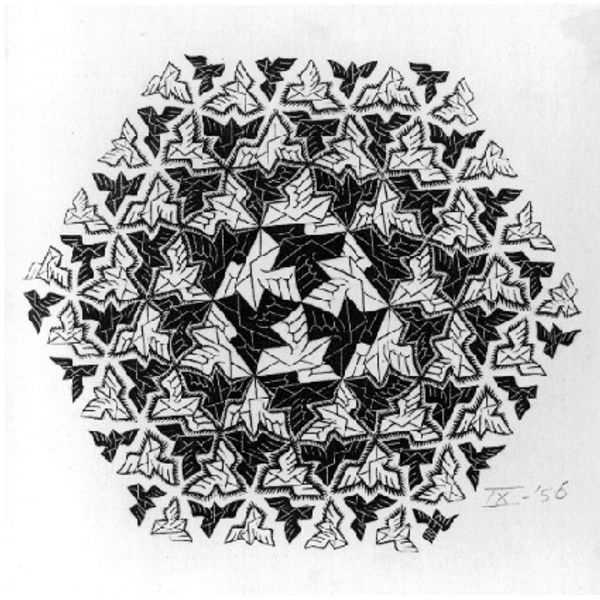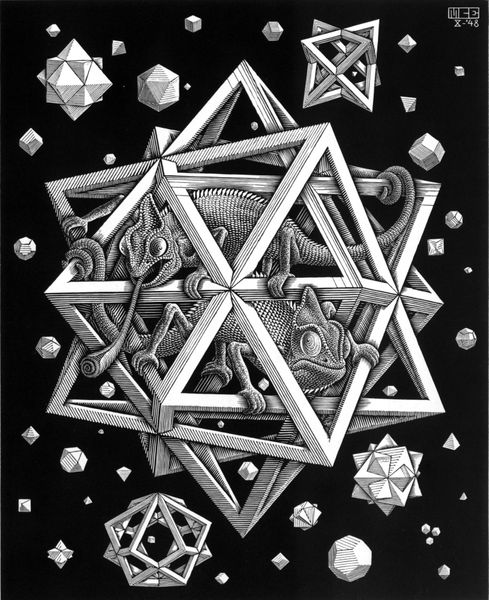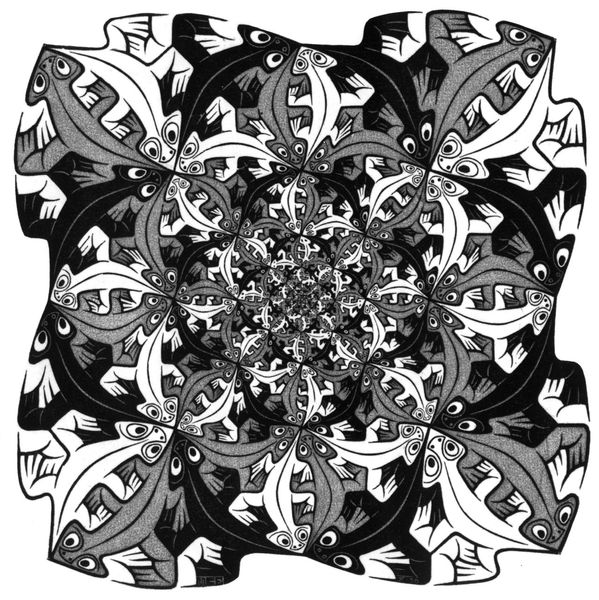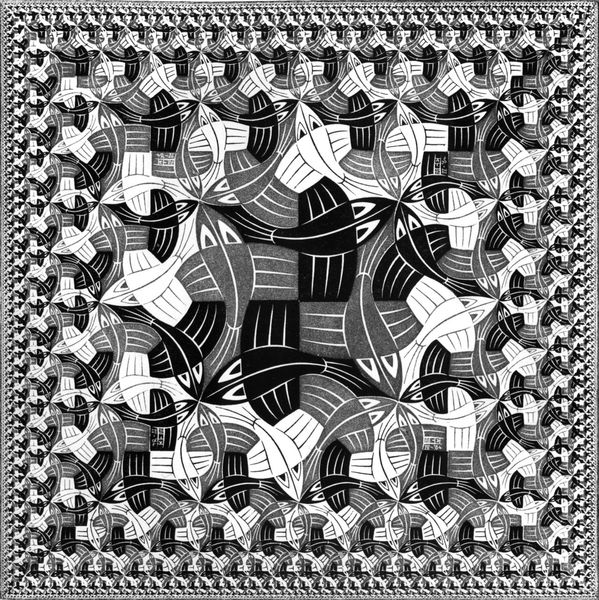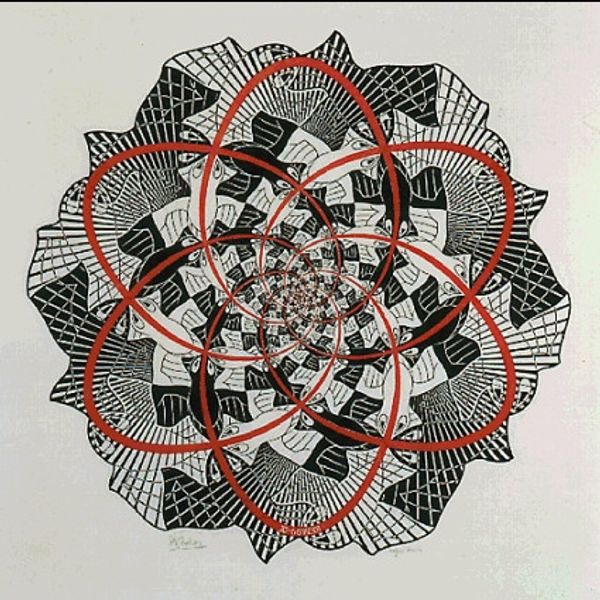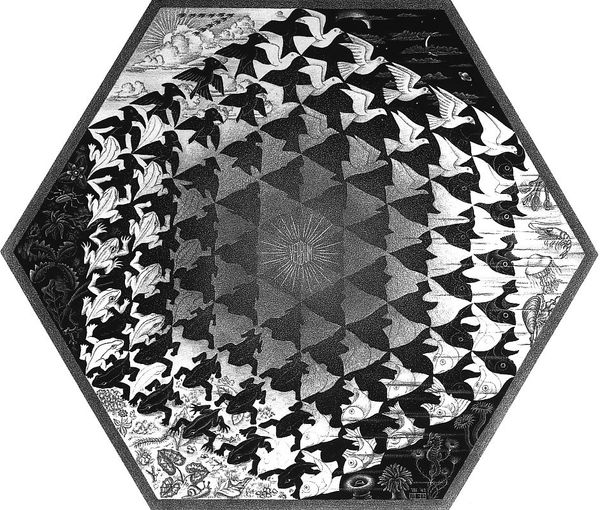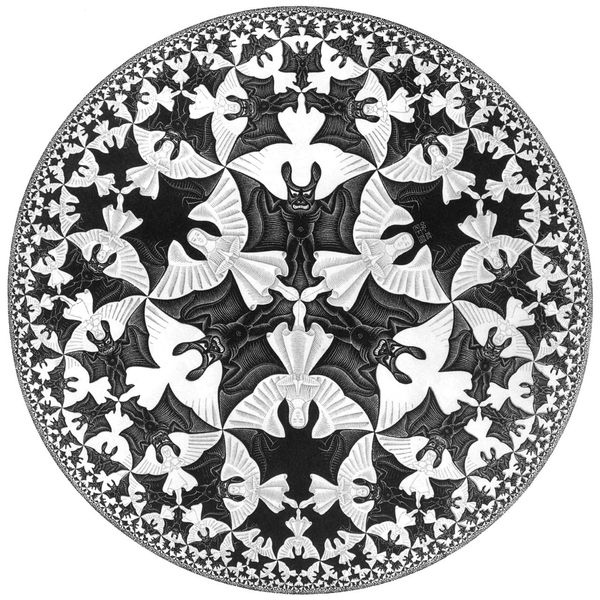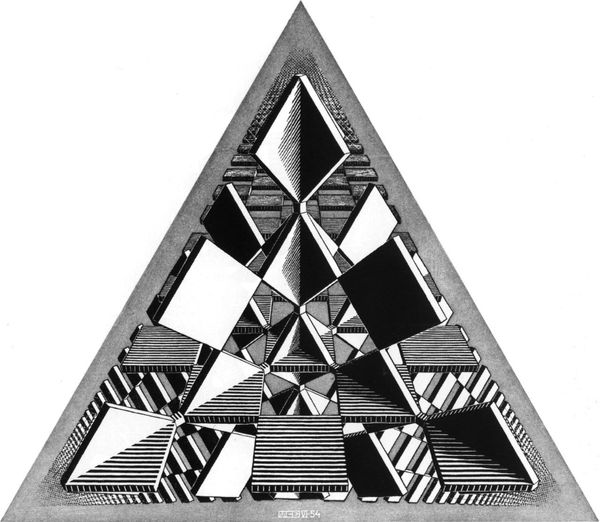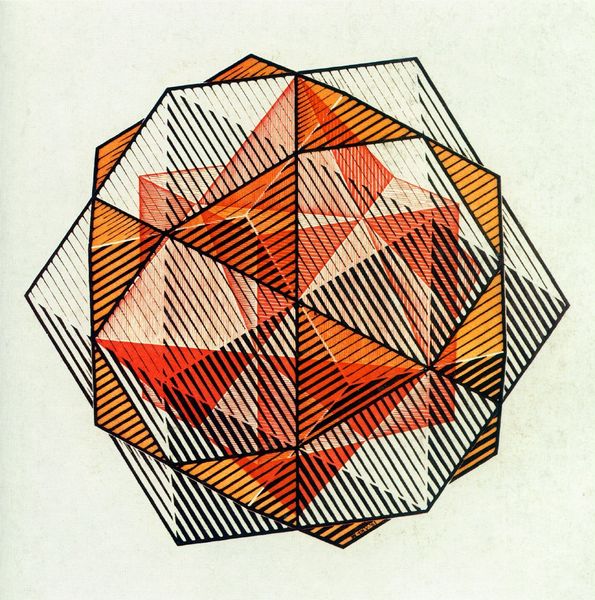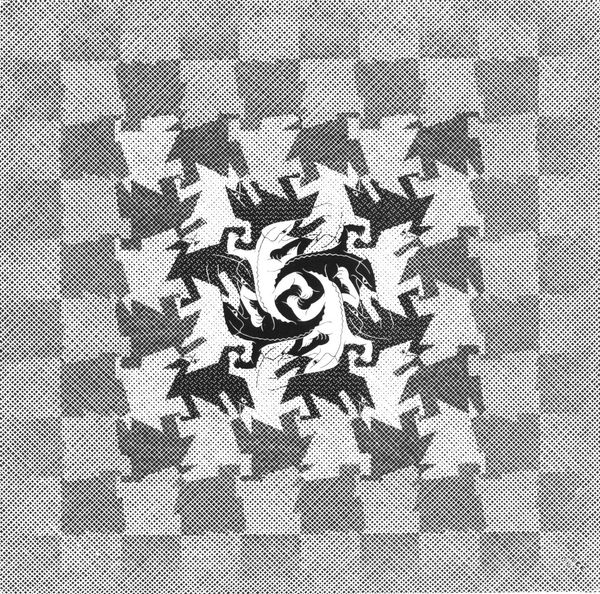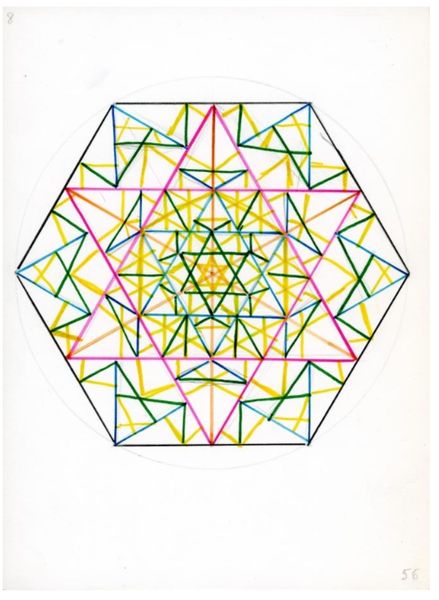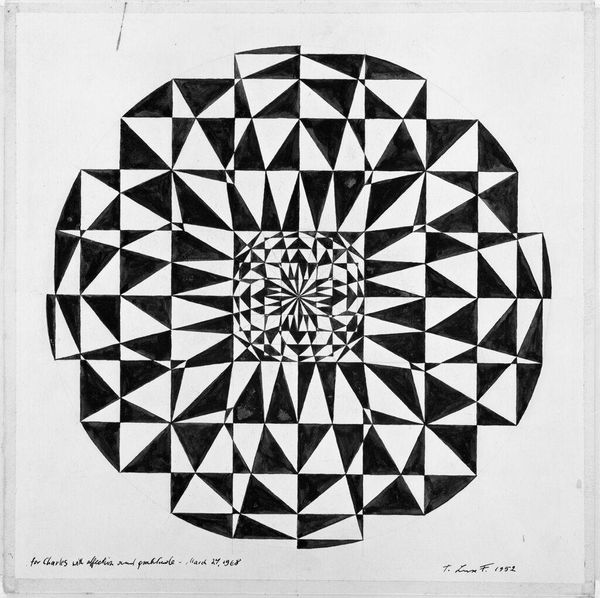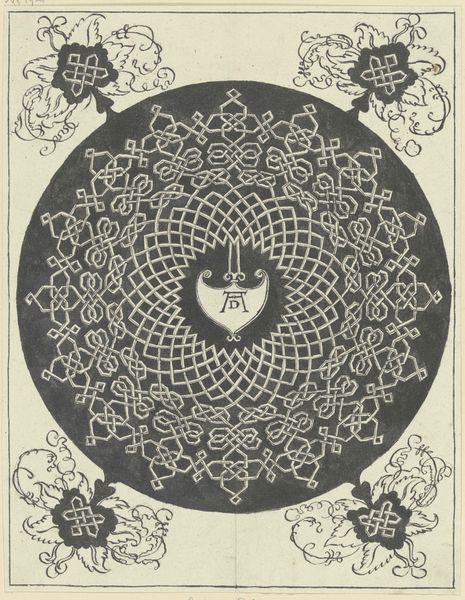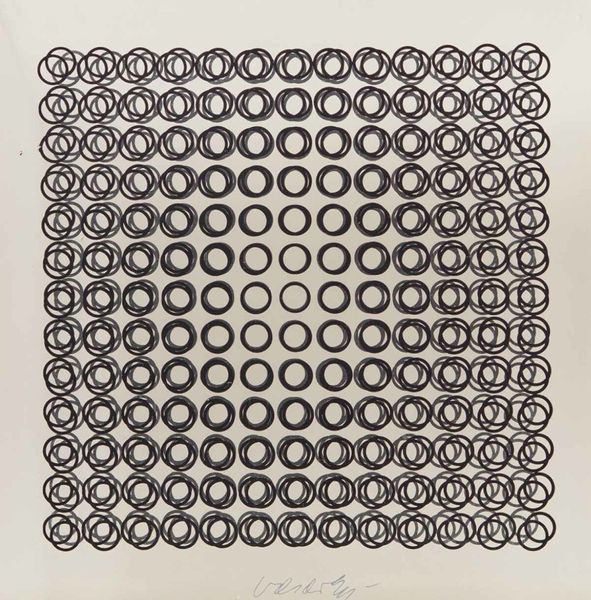
drawing, graphic-art, print
#
drawing
#
graphic-art
#
cubism
# print
#
pattern
#
geometric pattern
#
repetitive shape and pattern
#
organic pattern
#
geometric
#
repetition of pattern
#
intricate pattern
#
line
#
pattern repetition
#
layered pattern
#
funky pattern
#
combined pattern
#
repetitive pattern
Copyright: Public domain US
Curator: This intricate graphic artwork is entitled "Plane-Filling Motif with Human Motifs," created by M.C. Escher in 1921. Editor: It feels immediately claustrophobic, doesn’t it? A dense, almost suffocating pattern pressing in. Curator: Look at the repeated triangular and hexagonal forms, filled with human figures that are barely distinguishable at first glance. It feels reminiscent of a tessellated mosaic, pushing the limits of drawing and graphic arts. Think of the labor involved. Editor: I'm struck by those almost cartoonish human faces contained within each form. There's something unnerving about their fixed expressions repeated so perfectly, like ancient masks in some forgotten ritual. And then you look again, and the whole form becomes something else entirely. It almost hypnotizes you with repetition. Curator: It is more than repetition. Note Escher’s meticulous and planned process in interlocking the geometric forms. He would go on to develop it, in his future prints, with greater technical mastery of wood engraving and lithography, producing increasingly intricate works. How much do his processes define the message of this print? Editor: Well, beyond the technique, what do these faces *mean*? Perhaps it's a reflection on conformity, how individual identity can be swallowed up by larger structures, societies, even art itself. Or consider how cultures develop recurring iconographies, continuously reinvented to produce something similar over and over again, not just culturally but materially as well, which could very much link back to process. Curator: Indeed. The way our experiences shape our craft. It's as if we're meant to decode some message hidden within the layers. Editor: Exactly! And isn’t that the core function of art, especially through iconography - a visual language persisting across time and experience, inviting interpretation, encouraging conversation across centuries? I find myself lost inside it, a hall of mirrors reflecting humanity’s continuous pursuit of order, meaning, and making within patterned creation. Curator: Escher's precise geometric framework reflects more about the means of creation as we’ve unearthed it.
Comments
No comments
Be the first to comment and join the conversation on the ultimate creative platform.
